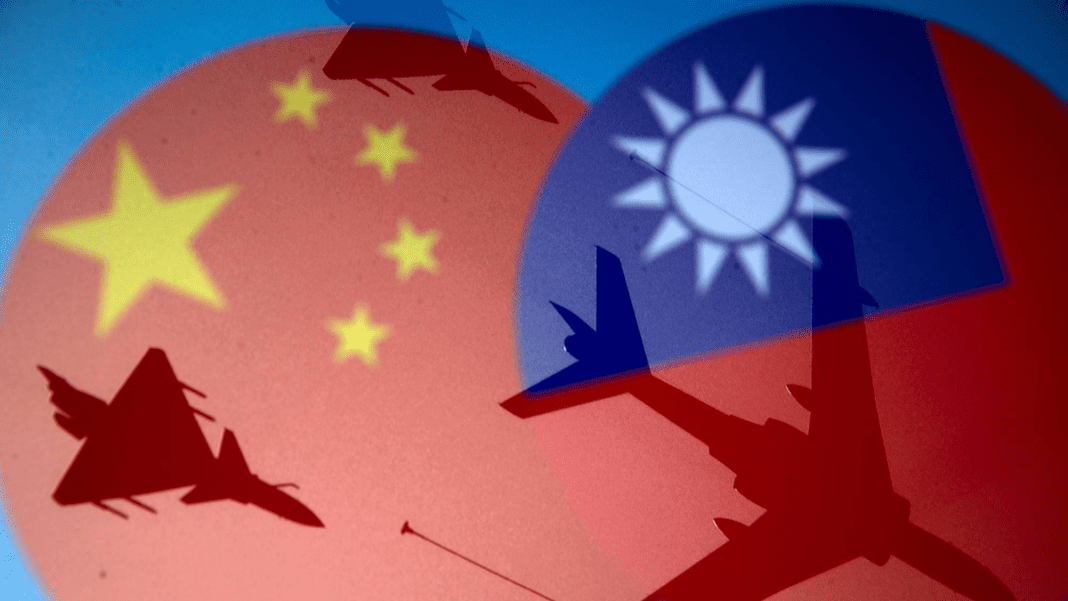China has issued one of its strongest warnings in recent months after Japan revealed plans to place new missiles on an island close to Taiwan. The statement, delivered during a regular press briefing, made it clear that China would “crush” any foreign interference in matters it considers linked to its national territory.
Rising Tensions and Threats of Foreign Interference
The warning came in response to Japan’s decision to strengthen its defenses by deploying missiles on an island positioned near the Taiwan Strait. China has repeatedly emphasized that foreign interference in Taiwan’s affairs is unacceptable and a direct challenge to its sovereignty.
Taiwan is a self-governed island that runs its own government, holds elections, and manages its own economy. However, China continues to view Taiwan as part of its own territory and considers any foreign interference in the region a serious threat.
Hostile patrols at Senkaku — China storms island waters moments after Japan’s Taiwan stand
China has said it has the “will, determination and ability” to protect its sovereignty. Officials stressed that foreign interference near Taiwan is a major concern and warned that such actions could escalate tensions in the region.
Japan’s plan involves putting missile units in a location not far from Taiwan. While Japan says this step is meant to improve its national security, China argues that it represents a form of foreign interference and raises the risk of miscalculation.
China Calls Japan’s Missile Move ‘Extremely Dangerous’ and a Form of Foreign Interference
China criticized the missile deployment, calling it “extremely dangerous” and accusing Japan of deliberately creating regional tension. Officials said Japan’s actions could provoke military confrontation and increase the risk of conflict, labeling the move as foreign interference in Taiwan’s affairs.
Japan has been increasing its defense spending and expanding its security measures due to rising concerns in the Indo-Pacific. These include military activity in nearby waters and airspace. However, China interprets these steps as foreign interference rather than normal defense preparation.
China Behind 210 Cyberattacks: Japan Faces Serious Security Breach
Taiwan’s government rejects China’s sovereignty claims and insists that only Taiwan’s people can decide their own future. China sees any foreign involvement in Taiwan as interference that undermines its territorial claims.
China has not ruled out the use of force to take control of Taiwan, which makes any outside involvement—military or political—particularly sensitive. Officials said the country will respond firmly if necessary, reinforcing its readiness to protect national sovereignty.
A Region Already on Edge Faces More Pressure
This latest exchange further adds to an already tense situation, with military flights, naval patrols, and public statements keeping the region on high alert. Even before Japan’s missile deployment takes place, China issued strong warnings against outside involvement near Taiwan.
Moreover, China emphasized that its military strength is sufficient to prevent any external actions that threaten its territory. Officials warned that therefore, any country attempting to intervene in the Taiwan Strait could face strong responses.
Japan argues that its missile deployment is a defensive measure for its own citizens and territory. However, China views it as part of a broader pattern of external interference in a region it considers a core interest.
The Taiwan Strait is one of the busiest shipping routes in the world, and consequently, such involvement could further destabilize the area. China has consistently condemned past attempts by other countries to meddle in the region, and thus, the latest statement reiterates its position.
For now, tensions revolve around statements, accusations, and planned military moves. Overall, the risk of foreign interference continues to be a key concern for China, making the region one of the most closely watched in global geopolitics.
